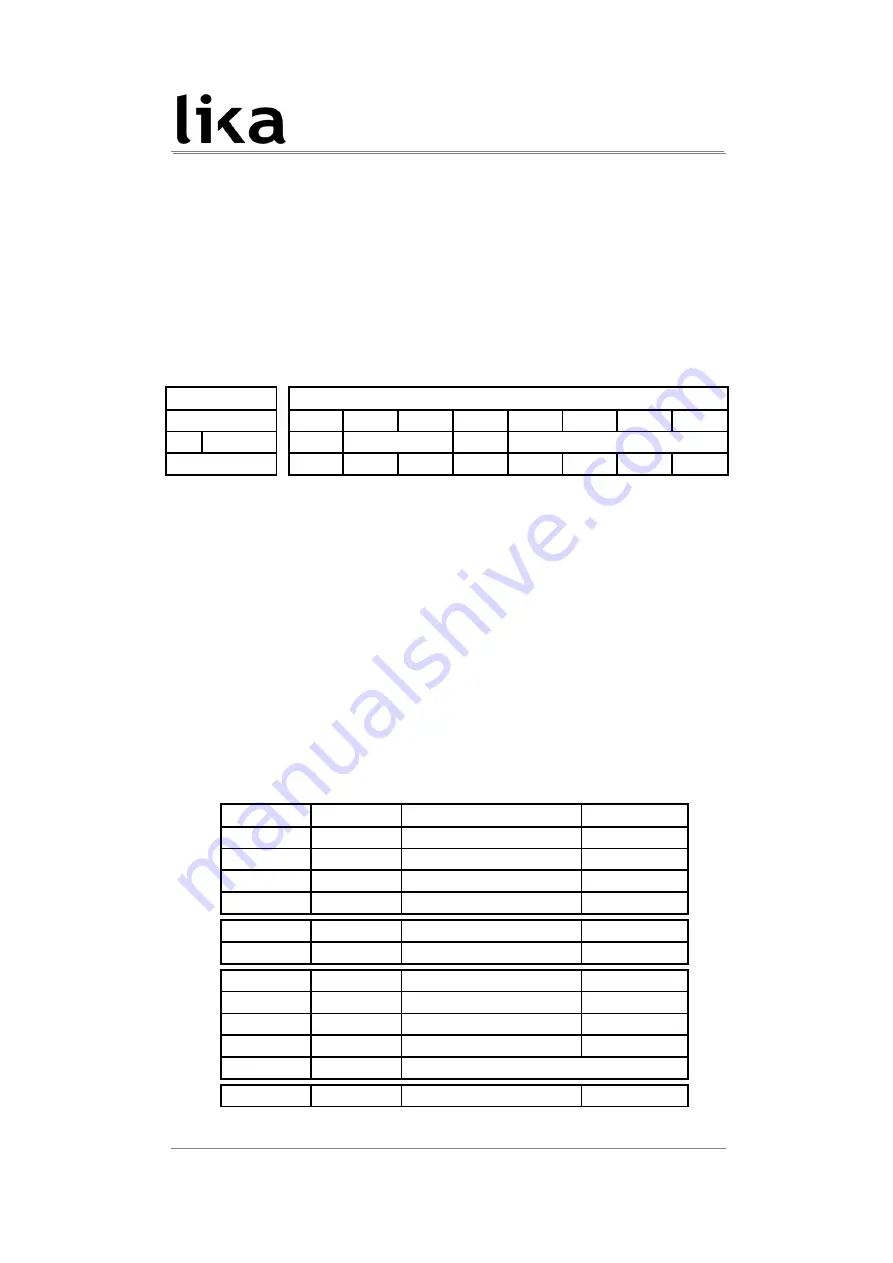
RD4 CANopen®
7.7 SDO messages
SDO messages are used to set new values to and read values from the device.
These parameters are described in the “Object dictionary” (see on page 46).
4 bytes at the most are used for CAN data, other 4 bytes are used for Command,
Index and Sub-index fields. SDO messages always need confirmation from the
Slave. It follows that when the Master sends a SDO message to the Slave, the
Slave always sends a reply (and a warning, should an error occur).
SDO structure:
IDENTIFIER
from 4 to 8 CAN data bytes
COB-ID(hex)
0
1
2
3
4
5
6
7
F.C. Node-ID
Com
Index
Sub
Data
1 byte
LSB
MSB 1 byte
LSB
…
…
MSB
Com
command
Index
parameter index
Sub
parameter sub-index
Data
parameter value (set or read value)
7.7.1 Command
Command byte contains the type of COB telegram transmitted to the CAN
network.
Three types of telegram are available:
Set
: used to send configuration parameters to the Slave;
Req
: used by the Master to read data from the Slave;
Warnings
: used by the Slave to send error messages to the Master (e.g.
“Index does not exist”, “Process data value not valid”, etc.).
Command
COB
COB type
Data length
22h
Set
M
S request
not specif.
23h
Set
M
S request
4 byte
2Bh
Set
M
S request
2 byte
2Fh
Set
M
S request
1 byte
60h
Set
S
M confirmation
0 byte
40h
Req
M
S request
0 byte
42h
Req
S
M reply
non specified
43h
Req
S
M reply
4 byte
4Bh
Req
S
M reply
2 byte
4Fh
Req
S
M reply
1 byte
41h
Req
S
M reply segmented SDO
80h
Warning
S
M reply
4 byte
MAN RD4 CB E 1.5
CANopen® interface
45 of 72





































